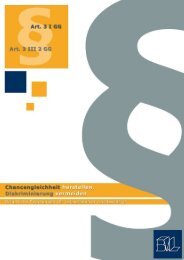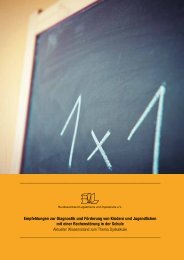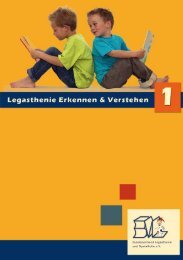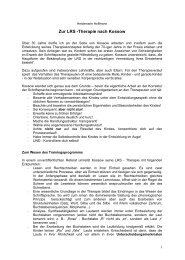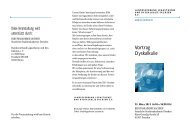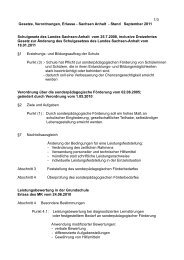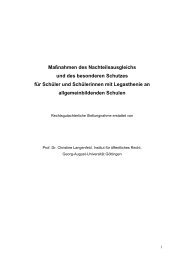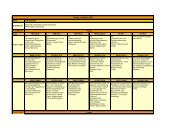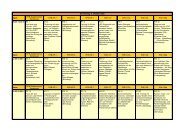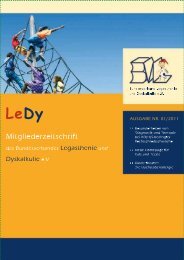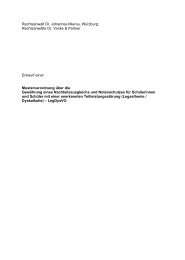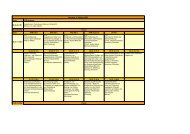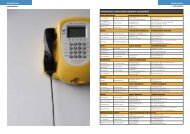Abstractband zum 16. Kongress des Bundesverbandes Legasthenie
Abstractband zum 16. Kongress des Bundesverbandes Legasthenie
Abstractband zum 16. Kongress des Bundesverbandes Legasthenie
Sie wollen auch ein ePaper? Erhöhen Sie die Reichweite Ihrer Titel.
YUMPU macht aus Druck-PDFs automatisch weboptimierte ePaper, die Google liebt.
<strong>Abstractband</strong> <strong>16.</strong> <strong>Kongress</strong> <strong>des</strong> Bun<strong>des</strong>verban<strong>des</strong> <strong>Legasthenie</strong><br />
Dieses Kooperationsprojekt eines überbetrieblichen Ausbildungsträgers mit einer auf<br />
Rechenschwäche spezialisierten Einrichtung und die Integration einer qualifizierten Dyskalkulietherapie<br />
in die überbetriebliche Berufsausbildung sind bun<strong>des</strong>weit einmalig.<br />
Korrespondenzautor:<br />
Jörg Kwapis<br />
j.kwapis@finixarts.de<br />
0331 5507767<br />
0331 2016705<br />
Development of basic number skills<br />
Karin Landerl<br />
Universität Tübingen, Tübingen, Deutschland<br />
Deficits in basic numerical processing have been identified as a central and probably<br />
causal problem in developmental dyscalculia, however, so far not much is known about<br />
the typical and atypical development of such skills. A study will be presented which<br />
assessed basic number skills cross-sectionally, in 268 typically developing and 132 dyscalculic<br />
children in Gra<strong>des</strong> 2, 3 and 4. Findings indicate that the efficiency of processing<br />
of numbers and numerosities improves over time and that dyscalculic children are generally<br />
less efficient than children with typical development. Robust effects of numerical<br />
distance, size congruity and compatibility of ten and unit digits in two-digit numbers could<br />
be identified as early as end of Grade 2. Only the distance effect for comparing symbolic<br />
representations of numerosities changed developmentally. Furthermore, dyscalculic<br />
children in Grade 2 showed an especially strong effect of compatibility when comparing<br />
two-digit numbers. Apart from that, the patterns of numerical processing were stable<br />
across grade and arithmetic levels. We did not find strong evidence that dyscalculic<br />
children process numbers qualitatively differently from children with typical arithmetic development.<br />
These findings seem to indicate that the cognitive representation of number<br />
may be intact in dyscalculia and that access and processing these representations may<br />
be the problem rather than representation in itself.<br />
Korrespondenzautor:<br />
Karin Landerl<br />
karin.landerl@uni-tuebingen.de<br />
07071 29 75306<br />
07071 552413<br />
76



